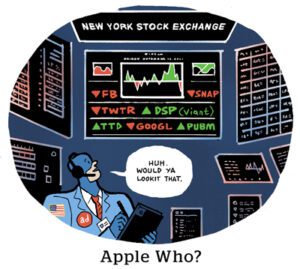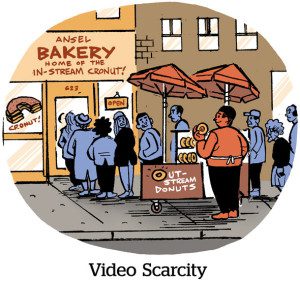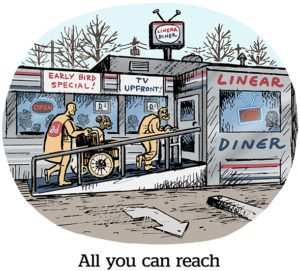Here’s today’s AdExchanger.com news round-up… Want it by email? Sign up here.
Ply Your Trade
The Trade Desk successfully rode many waves of programmatic trends. It cut out first-gen DSPs when they tried leapfrogging agencies to go straight to brands. It navigated migrations to cloud data and managed queries per second to defeat other DSPs in bake-offs. It solidified an early position in CTV.
The next hurdle is to make Unified ID2.0 a thing, Business Insider reports.
But UID2 is the toughest yet. That’s because UID2 is a test of TTD’s ability to shape online advertising, akin to Google or the IAB.
UID2 should be an IAB Tech Lab product. It’s open-sourced, but is also TTD’s baby, and the most interesting integrations are proprietary to TTD.
And there’s a chick-and-egg problem. Publishers don’t carry the UID2 code without demand in place; advertisers don’t commit without a critical mass of publishers.
But if TTD can make UID2 happen, it’s a sign that the DSP can pull off internet-wide projects.
For instance, if there was an open-source, industry-backed webpage template that any publisher could adopt to integrate with programmatic, it would ease advertisers’ minds about hijinks on the page.
That’s another IAB-type project. But, also, why not The Trade Desk?
Live To Serve
The IAB Tech Lab weathered one of the legal challenges to its data-driven ad targeting system in Europe.
In 2021, the ICCL, an Irish privacy advocacy group helmed by Johnny Ryan, an ad tech vet turned regulatory adversary, brought its suit against The Tech Lab. The group argued that the OpenRTB system represents a massive data breach and GDPR violation.
Almost three years later, the case was dismissed.
The IAB Europe is also fighting to maintain its Transparency & Consent Framework, which was deemed illegal by the Belgian data protection authority in 2022, then approved after a six-month reworking period. Still, the European high court will now decide whether the TCF consent string counts as personal data and whether the IAB Europe is a joint data controller for the service, which would make the organization liable for any violations committed by a publisher or vendor using the framework. The IAB Europe also hopes to clarify whether legitimate interest is valid grounds for collecting data for advertising purposes.
That case has dragged for a couple of years, and probably has another year or two to go.
Meta’s Unpaid Tab
Meta is ditching the news.
The company announced that it will remove the Facebook News tab in the US and Australia in April. The News tab is already gone in the UK, France and Germany.
Instead of news, which accounts for 3% of activity on its platform, Meta will focus on short-form video.
News orgs can still share their content organically. (You’re welcome.)
The announcement is not surprising, considering Meta has distanced itself from news content distribution or recommendation over accusations of political bias and promoting misinformation.
Meta also faces new laws in Australia and Canada that force it to share additional revenue with news publishers. Why bother when news isn’t worth the hassle (at least not revenue-wise).
Meta says its news deprecation will not impact existing deals with publishers. However, its rev-share deals already expired in the US and UK, and Meta will not be entering any further such agreements. Meta will also stop releasing products for news publishers.
Meta’s decision could completely dry up a once-reliable traffic stream for news orgs. A Chartbeat study commissioned by CNBC found Facebook referrals dropped from 50% of social traffic in 2022 to 33% in 2023.
But Wait, There’s More!
Ad tech’s take: early reactions to Google’s third-party cookie demise. [Digiday]
To keep up with the customer, get personal – with data. [Adweek]
Google’s rogue AI worries advertisers and affects ad tech. [Ad Age]
Google’s deal with Stack Overflow is further evidence that AI giants will pay for data. [Wired]
You’re Hired!
Disney vet John Love joins Roblox as VP, Business Development. [post]













